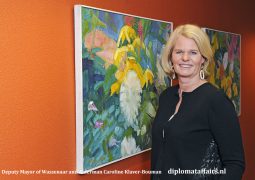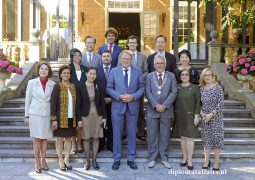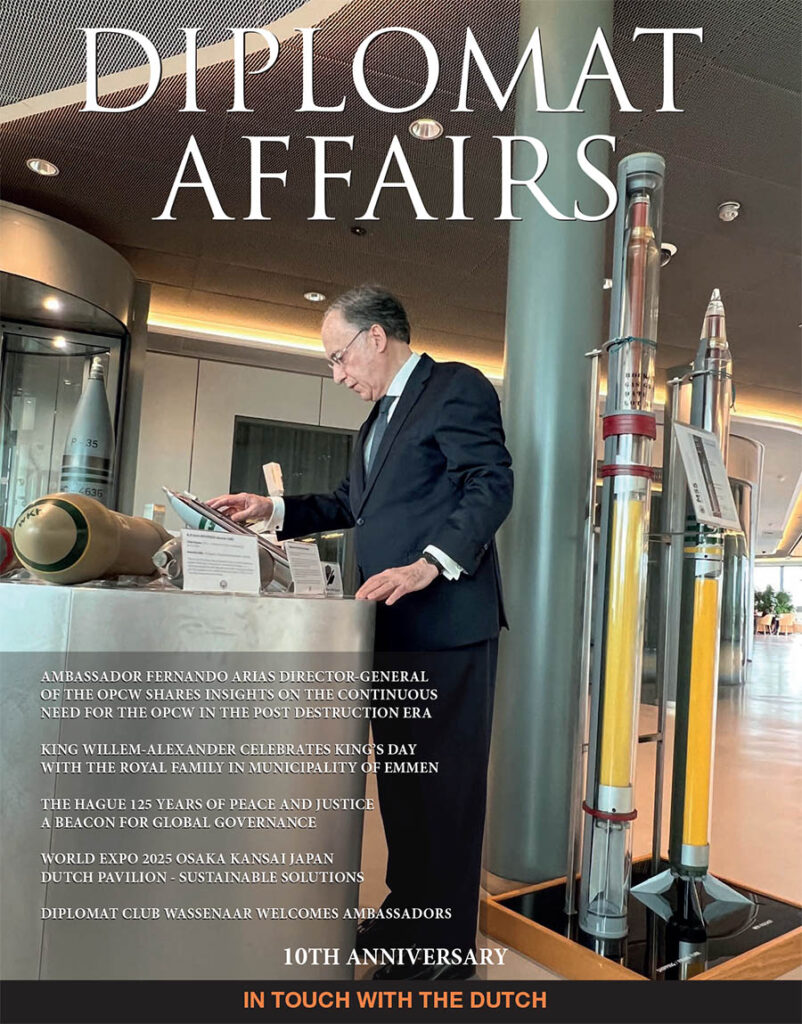The English Theatre: a gift to world culture
Sir Geoffrey Adams is patron of The English Theatre. “It’s a privilege to support it.”
Given the ever growing size of the international community in The Netherlands and the number of English speaking people in particular, it must have come as no surprise that, after returning from a six-year stay in the UK, Dutch lawyer and social worker Elske van Holk, having worked in the London theatre world, made the bold decision to found STET (Stichting The English Theatre) in 2006. Its very first production, Summit Conference, in June of that year, followed by the by now highly popular open air Shakespeare
performances, marked the beginning of a successful venture. STET’s programme now averages eight to ten performances a year, with the open-air performances of the British theatre company Illyria in the summer and A Christmas Carol in the winter as its regulars. STET’s Board consists of members of the Dutch, as well as the international community. This whole exciting venture is run by a small staff and a group of devoted volunteers, who assist in promoting and carrying out the act. Last but not least, STET’s patron is His Excellency Sir Geoffrey Adams, British Ambassador to The Netherlands, who is kind enough to make some time in his busy schedule to welcome us in his stunning, newly renovated residence and answer some questions, as well as pose for a few pictures, together with his wife Lady Adams, STET- founder Elske van Holk and
the very sweet Black labrador Rosy. You are Patron of the English Theatre in The Netherlands. As an Ambassador you obviously have a very busy schedule. What makes the English Theatre worth your time? “I regard the English Theatre as a precious part of the culture we share across the world. It’s a privilege to be able to support it in any way I can.”
In your opinion what can be done to make the English Theatre even more well known in The Netherlands? “I find that many people here in The Netherlands experience the English Theatre for the first time when they visit the United Kingdom. They fall in love with it, and want to follow their passion when they get home. So my hope is that many more people will come over to Britain – the home of English theatre – and fall in love with it themselves.”
After well over a century Dickens’ Christmas Carol is still hugely popular. Can you explain this? “The publication of Dickens’ A Christmas Carol coincided exactly with the beginnings in Britain of what we now think of as our ‘Christmas traditions’ – Christmas trees, Christmas cards, Christmas presents, and so on. As a story of redemption and of hope, Christmas Carol fitted right in with this new, optimistic kind of celebration – and it’s remained there ever since.”
You may also like...
Sorry - Comments are closed













